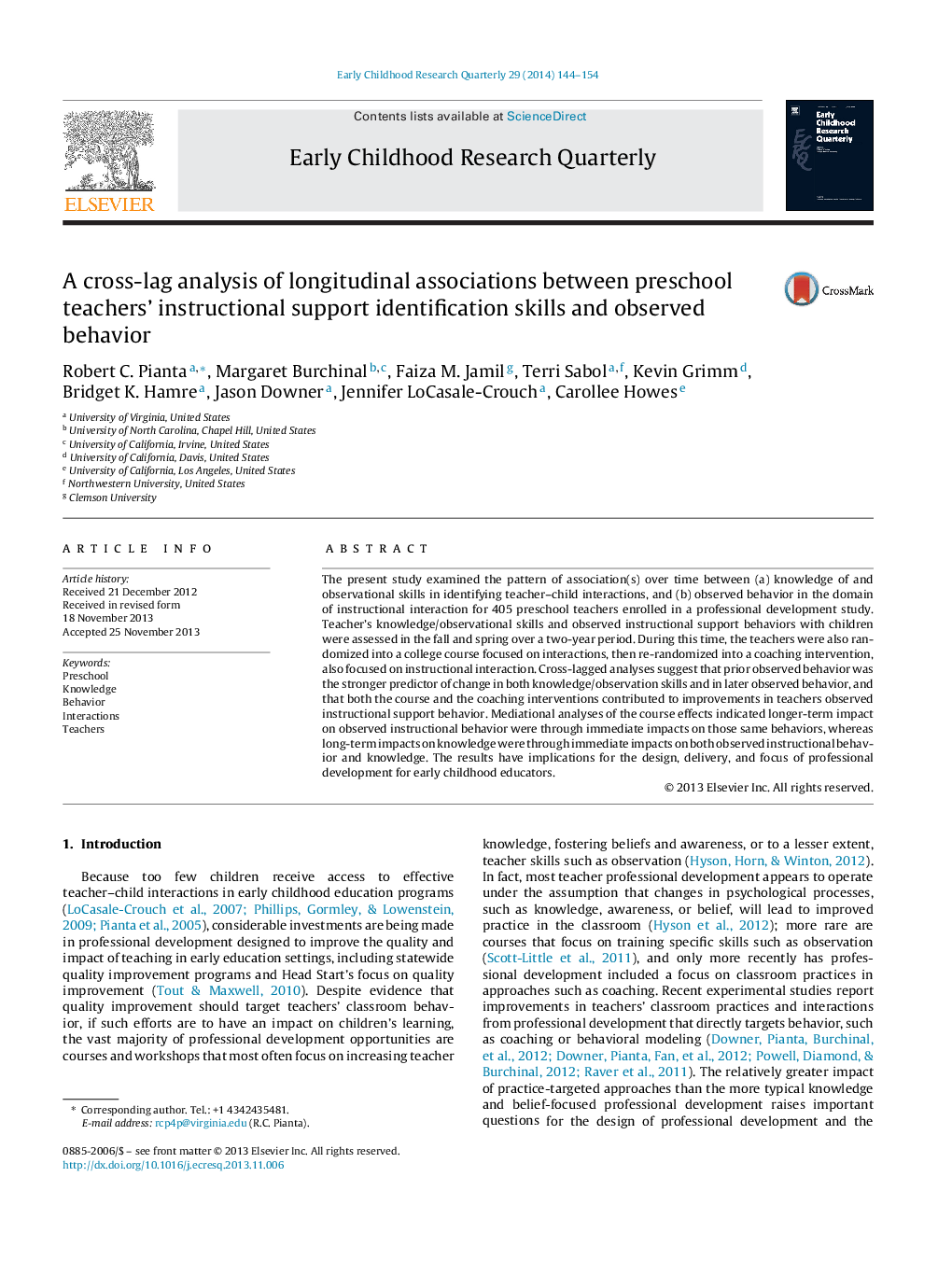| Article ID | Journal | Published Year | Pages | File Type |
|---|---|---|---|---|
| 353904 | Early Childhood Research Quarterly | 2014 | 11 Pages |
•We examine longitudinal associations between teacher knowledge and behavior regarding instructional interactions.•Observed behavior was the stronger predictor of change in behavior and knowledge.•Observed behavior mediated treatment effects on teaching in the subsequent year.
The present study examined the pattern of association(s) over time between (a) knowledge of and observational skills in identifying teacher–child interactions, and (b) observed behavior in the domain of instructional interaction for 405 preschool teachers enrolled in a professional development study. Teacher's knowledge/observational skills and observed instructional support behaviors with children were assessed in the fall and spring over a two-year period. During this time, the teachers were also randomized into a college course focused on interactions, then re-randomized into a coaching intervention, also focused on instructional interaction. Cross-lagged analyses suggest that prior observed behavior was the stronger predictor of change in both knowledge/observation skills and in later observed behavior, and that both the course and the coaching interventions contributed to improvements in teachers observed instructional support behavior. Mediational analyses of the course effects indicated longer-term impact on observed instructional behavior were through immediate impacts on those same behaviors, whereas long-term impacts on knowledge were through immediate impacts on both observed instructional behavior and knowledge. The results have implications for the design, delivery, and focus of professional development for early childhood educators.
